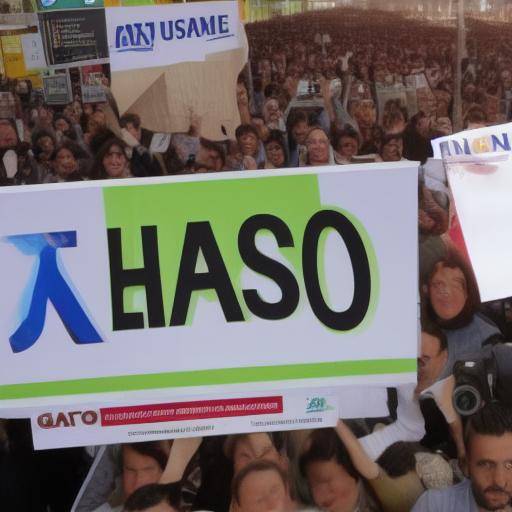
In times of economic uncertainty, financial resilience is essential to safeguard long-term financial stability and security. Effective management of financial crises requires careful planning and preventive measures. In this article, we will explore the fundamental role of the emergency fund in protecting and supporting personal and business finances during difficult times.
Resilience: The Base of Solid Financial Management
Financial resilience is the ability to face and recover from adverse economic situations. This fundamental concept involves the adoption of responsible financial practices, long-term planning and the creation of protection mechanisms. In the context of the financial crises, resilience becomes a lifeguard that can cushion the impact of unexpected events, thus avoiding devastating consequences.
The Importance of Financial Security
Financial security, closely linked to resilience, represents a sense of protection and confidence in the stability of finance. Through savings strategies, prudent investment and asset diversification, a financial mattress can be built to provide security at times of economic turbulence. Financial security provides peace and freedom to face the financial challenges with greater calm and clarity of thought.
The Vital Role of the Emergency Fund
The emergency fund, also known as a security mattress, is an essential component of financial resilience. It consists of reserving an amount of money that is accessible and sufficient to cover essential costs in case of emergencies such as job loss, serious illness, unexpected expenses or large-scale economic crisis situations. This fund acts as a crucial financial backing that allows people and businesses to overcome difficult times without resorting to expensive loans or the disposal of assets on the ground.
History and Evolution of the Emergency Fund
The concept of emergency fund has deep historical roots, finding its origin in ancient cultures that valued the forecast and financial prudence. As modern economies evolved, the need for credible financial support became evident, especially during global financial crises and economic recessions.
Throughout history, key moments have been identified in which the presence of an emergency fund would have protected individuals and companies from financial ruin. These historic episodes provide valuable lessons on the importance of holistic financial planning and the outstanding role of the emergency fund in mitigating the adverse impacts of economic crises.
Development and Adaptation of the Emergency Fund in News
With the advent of the modern era, financial practices and the concept of resilience have evolved significantly. Emergency funds have become key elements of personal and business financial strategies. Financial institutions and government agencies have actively promoted the adoption of emergency funds as a proactive approach to financial risk management.
This evolution has led to the introduction of various emergency background models and approaches that adapt to the changing needs of society and businesses. From easy-to-access savings accounts to corporate reserve funds, the range of options available reflects growing awareness of the importance of financial resilience in a volatile world.
Detailed Analysis: Benefits and Challenges of the Emergency Fund
The establishment and maintenance of an emergency fund entails a number of tangible benefits, and in turn, potential challenges that must be effectively addressed. In considering the adoption of an emergency fund, it is essential to carefully understand its impact on resilience and financial security. Some of the key benefits include the ability to cover unforeseen expenses without resorting to expensive debts, reducing financial stress and preserving long-term economic stability.
However, establishing and maintaining an emergency fund is not without challenges. The allocation of financial resources for its creation can be difficult in unstable economic environments, and the temptation to use such funds for non-essential costs can undermine its fundamental purpose. Therefore, the balance between the availability of funds for emergencies and investment in long-term growth opportunities is crucial.
Best Practices and Approaches for an Effective Emergency Fund
Maintaining a solid emergency fund requires financial discipline and a well-defined strategy. In considering the creation of an emergency fund, it is important to set clear targets, determine the optimal size of the fund based on individual or business circumstances, and choose the appropriate investment vehicles to maximize liquidity and profitability.
In addition, diversifying funding sources, establishing clear protocols for access to funds and regularly reviewing resource allocations are essential practices to ensure the long-term effectiveness of the emergency fund. The adoption of these best practices ensures that the emergency fund works as a reliable backing in times of financial crisis, thereby strengthening resilience and financial security.
The Role of the Emergency Fund in Business Resilience
Enterprises are also vulnerable to economic fluctuations and financial risks. In this context, the emergency fund plays a crucial role in corporate resilience by providing a financial mattress that can mitigate the impact of unforeseen events, such as lower income, loss of customers or interruptions in the supply chain.
By establishing solid corporate emergency funds, companies can protect themselves against market volatility, maintain operational continuity and preserve the trust of stakeholders. This form of financial backing is not only a key element in the management of business crises, but it can also offer competitive advantages by demonstrating solidarity and financial stability in a changing business environment.
Taking advantage of the Emergency Fund as a Strategic Tool
In addition to its protective function, the emergency fund can be strategically used to capitalize on emerging opportunities during financial crises. The availability of a well-managed emergency fund can enable exploration of countercyclical investments, strategic procurement or expansion of operations at a time when other market actors are paralyzed by uncertainty.
This ability to make informed and bold decisions with the support of a properly provided emergency fund exemplifies the strategic importance of this financial instrument as an enabler of resilience and entrepreneurship in turbulent times.
Integration of Financial Resilience, Security and Backup
In analyzing the role of the emergency fund in managing financial crises, the interconnection between resilience, security and financial support is evident. These concepts are intertwined in a complex network that sustains financial stability and recovery capacity at both individual and business levels.
Resilience represents the ability to face financial adversities with determination and adaptability. Financial security, in turn, offers a protective shield that provides confidence and stability in the face of economic uncertainty. The emergency fund acts as the concrete financial backing that materializes this security, providing a lifeguard that prevents the fall in financial despair.
Future trends and predictions for Financial Crisis Management
As global economic and financial dynamics continue to evolve, the role of the emergency fund in financial crisis management is expected to become even more important. The need for financial resilience has been strongly highlighted as a result of events such as the recent global economic crisis, which has prompted individuals and companies to reevaluate their approach to financial risk management.
In the future, more integration of innovative financial technologies, such as personalized financial management applications and standby business solutions, is expected to facilitate the creation and efficient management of emergency funds. The digitization of financial services will promote accessibility and transparency in the management of financial reserves, thus democratizing financial resilience and protection against economic crises.
Government regulations and fiscal policies are also expected to play an active role in promoting sustainable financial practices and the widespread adoption of emergency funds. Recognition of the strategic importance of resilience, security and financial support in long-term economic stability will promote proactive initiatives aimed at promoting the creation and maintenance of emergency funds at the national and international levels.
By synchronizing resilience, security and financial support through effective management of emergency funds, a solid foundation can be built to address the economic challenges ahead and to capitalize on emerging opportunities in a dynamic and changing financial environment.
Conclusion
In conclusion, the role of the emergency fund in managing financial crises is of vital importance in preserving resilience and stability in times of economic uncertainty. The combination of sound financial resilience, financial security assurance and backing provided by a well-managed emergency fund is a key approach to protecting against the shocks of financial crises and preparing for the future.
As a society, it is essential to recognize the relevance of these interconnected financial concepts, adopt responsible financial practices and promote awareness of the importance of a substantial emergency fund. In doing so, we can strengthen our capacity to face unforeseen financial challenges, foster economic stability and build a more secure and prosperous financial future.
FAQs
1. What is the recommended amount for an emergency fund?
The recommended amount for an emergency fund varies according to individual and business circumstances. It is generally suggested to reserve between 3 to 6 months of regular expenditures as a starting point. However, factors such as job stability, the industry in which it is worked and the presence of significant debts should also be taken into account in determining the optimal amount.
2. What is more important: the performance or liquidity of the emergency fund?
The liquidity of the emergency fund, that is, the immediate accessibility of funds, is essential. Although reasonable performance must be sought, the main priority of the emergency fund is to provide security in times of crisis, so liquidity is essential to meet this purpose.
3. What role do long-term investments play in financial resilience?
Long-term investments can complement financial resilience by generating growth and increasing the long-term financial security potential. However, these investments should not compromise the availability of emergency funds in the event of financial setbacks.
4. What is the difference between a personal emergency fund and a business fund?
A personal emergency fund is intended to protect individual and family finances in crisis cases, while an enterprise emergency fund performs the same function, but at the business level. Both serve to ensure financial stability in times of adversity.
5. What if I exhaust my emergency fund?
If you see the need to use your emergency fund, it is important to re-evaluate your financial practices and prioritize fund reconstruction. Identify the reasons that led to the exhaustion of the fund and adjust your financial approach to strengthening your resilience in the future.
6. What is the role of insurance policies in managing financial crises?
Insurance policies play a complementary role in providing protection against specific risks, such as health, ownership or liability. By integrating solid insurance coverage with an emergency fund, global financial security is strengthened and defences are extended against economic crises.
In short, the role of the emergency fund in managing financial crises is essential to ensuring resilience and financial security in a volatile economic environment. In understanding the importance of this financial support, both at the personal and business levels, and in implementing sound financial practices, we can strengthen our ability to cope with financial adversities and build a more stable and prosperous financial future.






















































